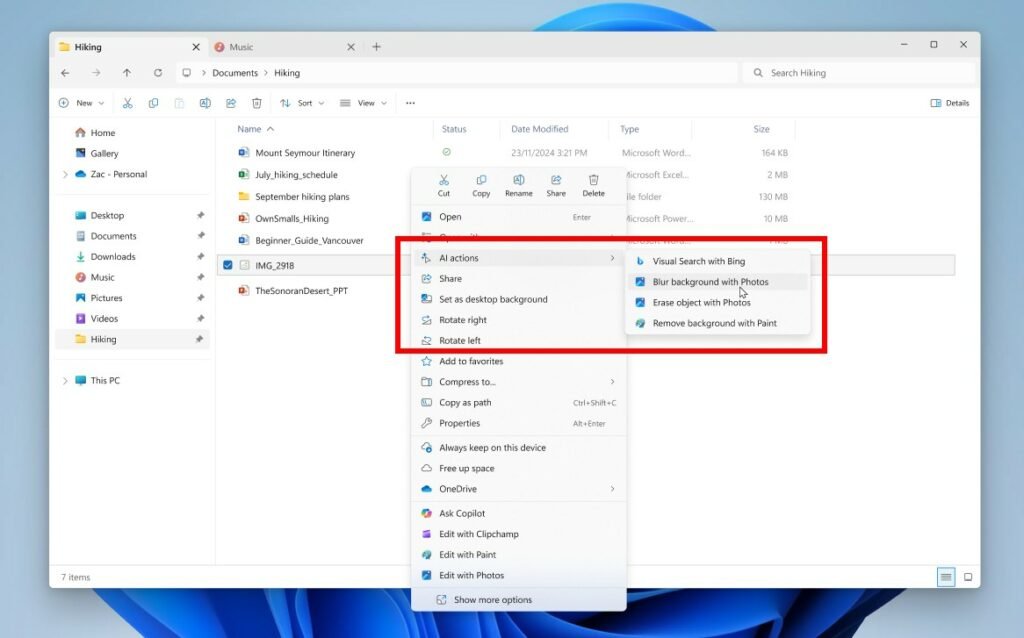AI Research
Palantir accuses UK doctors of choosing ‘ideology over patient interest’ in NHS data row | Palantir

Palantir, a US data company that works with Israel’s defence ministry, has accused British doctors of choosing “ideology over patient interest” after they attacked the firm’s contract to process NHS data.
Louis Mosley, Palantir’s executive vice-president, hit back at the British Medical Association, which recently said the £330m deal to create a single platform for NHS data – ranging from patient data to bed availability – “threatens to undermine public trust in NHS data systems”.
In a formal resolution the doctors said last month this was because it was unclear how the sensitive data would be processed by Palantir, which was founded by the Trump donor Peter Thiel. They cited the firm’s “track record of creating discriminatory policing software in the US” and its “close links to a US government which shows little regard for international law”.
But Mosley dismissed the attack when he gave evidence to MPs from the Commons science and technology committee on Tuesday. Palantir has also won contracts to handle mass data controlled by the Ministry of Defence, police and local authorities.
Thiel, a libertarian, named the company after the “seeing stones” in the Lord of the Rings trilogy. He has previously said the British public’s affection for the NHS is a case of “Stockholm syndrome”, but Mosley said he was not speaking for Palantir.
Palantir also provides artificial intelligence-enabled military targeting systems, as well as software to integrate and analyse data scattered across different systems, such as in the health service.
“I think the accusation that we lack transparency or this is secretive is wrong,” Mosley said. “I think that BMA has, if I may be frank, chosen ideology over patient interest. I think our software is going to make patient lives better by making their treatment quicker, more effective, and ultimately the healthcare system more efficient.”
In 2023 the government awarded Palantir the contract to build a new NHS “federated data platform”, but concerns have been raised by some local NHS trusts that the system was no better than the existing technology and could even reduce functionality, the website Democracy for Sale reported.
Palantir was also one of the many technology companies the Guardian revealed last week had recently met the justice secretary, Shabana Mahmood, to discuss ideas to help solve the crisis in prisons and probation, from inserting tracking devices under offenders’ skin to assigning robots to contain prisoners.
During the hearing Mosley was challenged by the chair, Chi Onwurah MP, over whether it was the right company to be involved in the NHS when it was also working for the Israel Defense Forces in Gaza, through its military applications.
Mosley declined to give operational details about what Palantir does for the Israeli authorities. Its products include a system called Gotham, which “supports soldiers with an AI-powered kill chain, seamlessly and responsibly integrating target identification”.
Onwurah said cultural change was needed in the NHS in order to drive uptake of the new data systems. She asked Mosley: “Do you really think that Palantir is the organisation to bring together 42 integrated care boards, over 200 NHS Trusts to champion NHS values, to bring them together around one federated data [platform] and, in the future, a single patient record?”
“I think the question of trust should really be about our competence above all,” Mosley said. “Are we delivering [what] we have promised to deliver? Are we making the patient experience quicker, more effective, more efficient? And if we are, then we should be trusted with that.”
The BMA said its opposition to Palantir’s involvement in the NHS was a matter of good governance, not ideology.
“If Palantir’s software is being used to target individuals in immigration enforcement and is being deployed in active conflict zones, then that’s completely incompatible with the values we uphold in the delivery of care,” said Dr David Wrigley, the deputy chair of the BMA’s general practitioners committee.
He warned patients would be alarmed and could choose to withhold information from their doctor if they did not trust the organisation processing their data or there were fears about what the data might be used for.
The Liberal Democrat MP Martin Wrigley said the interoperability between the data systems Palantir provides for health and defence was “profoundly worrying”. The Conservative MP Kit Malthouse wanted to know if a military could target particular individuals with particular characteristics by using Palantir’s ability to process a large pool of data. Mosley said: “We provide an enormous amount of control and governance to the organisations that use our software for that purpose to manage precisely the kind of risks that you’re talking about.”
Malthouse said: “That sounds like a yes”.
It also emerged during the hearing that Palantir continues to employ Global Counsel, a lobbying firm co-founded by Britain’s ambassador to Washington, Peter Mandelson. Mosley denied that a visit to Palantir’s Washington DC office by the British prime minister, Keir Starmer, was arranged by Mandelson, saying “it was done through the proper channels”. Mandelson stepped down from Global Counsel in “early 2025”, the consultancy’s website says.
AI Research
Microsoft Revamps File Explorer with Artificial Intelligence

Redazione RHC : 12 September 2025 17:58
Microsoft has begun testing new AI-powered features in File Explorer in Windows 11. These features will allow users to interact with images and documents directly from File Explorer, without having to open files in separate apps.
The new feature is called “AI Actions” and currently works with JPG, JPEG, and PNG images, allowing you to do the following:
- Remove Background in Paint: Quickly cut out the background of an image, leaving only the Subject;
- Remove Objects with the Photos app: Remove unwanted elements from photos using generative AI.
- Blur Background using the Photos app: Focuses on the subject while blurring the background.
- Search Images with Bing Visual Search: Visual Search with Bing finds similar images, objects, landmarks, and more across the web.

“AI Actions in File Explorer make working with files faster and easier—just right-click, for example, to edit an image or get a summary of a document,” say Microsoft representatives Amanda Langowski and Brandon LeBlanc.
These new features are available in Windows 11 Insider Preview Build 27938. Along with these, another useful feature has been introduced: under Settings > Privacy & Security > Text & Image Generation, you now see a list of third-party apps that have recently used Windows local generative AI models.
You can view this activity and manage these apps’ access to AI features.

In early May, Microsoft also introduced AI agents, intelligent assistants that can change Windows settings with a voice or text command. These features are now available on Copilot+ PCs and Snapdragon processors.
 Redazione
RedazioneThe editorial team of Red Hot Cyber consists of a group of individuals and anonymous sources who actively collaborate to provide early information and news on cybersecurity and computing in general.
AI Research
AI Research Healthcare: Transforming Drug Discovery –

Artificial intelligence (AI) is transforming the pharmaceutical industry. More and more, AI is being used in drug discovery to predict which drugs might work and speed up the whole development process.
But here’s something you probably didn’t see coming: some of the same AI tools that help find new drug candidates are now being used to catch insurance fraud. It’s an innovative cross-industry application that’s essential in protecting the integrity of healthcare systems.
AI’s Core Role in Drug Discovery
The field of drug discovery involves multiple stages, including initial compound screening and preclinical testing to clinical trials and regulatory framework compliance. These steps are time-consuming, expensive, and often risky. Traditional methods can take over a decade and cost billions, and success rates remain frustratingly low. This is where AI-powered drug discovery comes in.
The technology taps machine learning algorithms, deep learning, and advanced analytics so researchers can process vast amounts of molecular and clinical data. As such, pharmaceutical firms and biotech companies can reduce the cost and time required in traditional drug discovery processes.
AI trends in drug discovery cover a broad range of applications, too. For instance, specialized AI platforms for the life sciences are now used to enhance drug discovery workflows, streamline clinical trial analytics, and accelerate regulatory submissions by automating tasks like report reviews and literature screenings. This type of technology demonstrates how machine learning can automatically sift through hundreds of models to identify the optimal one that best fits the data, a process that is far more efficient than manual methods.
In the oncology segment, for example, it’s responsible for innovative precision medicine treatments that target specific genetic mutations in cancer patients. Similar approaches are used in studies for:
- Neurodegenerative diseases
- Cardiovascular diseases
- Chronic diseases
- Metabolic diseases
- Infectious disease segments
Rapid development is critical in such fields, and AI offers great help in making the process more efficient. These applications will likely extend to emerging diseases as AI continues to evolve. Experts even predict that the AI drug discovery market will grow from around USD$1.5 billion in 2023 to between USD$20.30 billion by 2030. Advanced technologies, increased availability of healthcare data, and substantial investments in healthcare technology are the main drivers for its growth.

From Molecules to Fraud Patterns
So, how do AI-assisted drug discovery tools end up playing a role in insurance fraud detection? It’s all about pattern recognition. The AI-based tools used in drug optimization can analyze chemical structures and molecular libraries to find hidden correlations. In the insurance industry, the same capability can scan through patient populations, treatment claims, and medical records to identify suspicious billing or treatment patterns.
The applications in drug discovery often require processing terabytes of data from research institutions, contract research organizations, and pharmaceutical sectors. In fraud detection, the inputs are different—claims data, treatment histories, and reimbursement requests. The analytical methods remain similar, however. Both use unsupervised learning to flag anomalies and predictive analytics to forecast outcomes, whether that’s a promising therapeutic drug or a suspicious claim.
Practical Applications In and Out of the Lab
Let’s break down how this dual application works in real-world scenarios:
- In the lab: AI helps identify small-molecule drugs, perform high-throughput screening, and refine clinical trial designs. Using generation models and computational power, scientists can simulate trial outcomes and optimize patient recruitment strategies, leading to better trial outcomes and fewer delays and ensure drug safety.
- In insurance fraud detection: Advanced analytics can detect billing inconsistencies, unusual prescription patterns, or claims that don’t align with approved therapeutic product development pathways. It protects insurance systems from losing funds that could otherwise support genuine patients and innovative therapies.
This shared analytical backbone creates an environment for innovation that benefits both the pharmaceutical sector and healthcare insurers.
Challenges and Future Outlook
The integration of AI in drug discovery and insurance fraud detection is promising, but it comes with challenges. Patient data privacy, for instance, is a major concern for both applications, whether it’s clinical trial information or insurance claims data. The regulatory framework around healthcare data is constantly changing, and companies need to stay compliant across both pharmaceutical and insurance sectors.
On the fraud detection side, AI systems need to balance catching real fraud without flagging legitimate claims. False positives can delay patient care and create administrative headaches. Also, fraudsters are getting more sophisticated, so detection algorithms need constant updates to stay ahead.
Despite these hurdles, the market growth for these integrated solutions is expected to outpace other applications due to their dual benefits. With rising healthcare costs and more complex fraud schemes, insurance companies are under increasing pressure to protect their systems while still covering legitimate treatments.
Looking ahead, AI-driven fraud detection is likely to become more sophisticated as it learns from drug discovery patterns. And as healthcare fraud becomes more complex and treatment options expand, we can expect these cross-industry AI solutions to play an even bigger role in protecting healthcare dollars.
Final Thoughts
The crossover between AI drug discovery tools and insurance fraud detection shows how pattern recognition technology can solve problems across different industries. What started as a way to find new medicines is now helping catch fraudulent claims and protect healthcare dollars.
For patients, this dual approach means both faster access to new treatments and better protection of the insurance systems that help pay for their care. For the industry, it’s about getting more value from AI investments; the same technology that helps develop drugs can also stop fraud from draining resources. It’s a smart example of how one innovation can strengthen healthcare from multiple angles.
Related
AI Research
Research Tip Sheet: AI and Heart Failure Plus Recent Headlines

LOS ANGELES (Sept. 12, 2025) — An artificial intelligence (AI) program created by Cedars-Sinai may reduce hospitalizations in people diagnosed with heart failure, a new study reports.
The study, published in JACC: Heart Failure, included 50 people who had been diagnosed with a condition called heart failure with reduced ejection fraction, in which the heart’s main pumping chamber, the left ventricle, becomes too weak to circulate blood throughout the body.
For three months, patients used a smartphone app to transmit home blood pressure readings to their cardiologists. The blood pressure readings were analyzed by an AI program that generated prescribing recommendations to the cardiologists, such as whether a new drug should be added or a dosage changed. The software, named HF-AI (for heart failure AI) was trained using data from Cedars-Sinai patients with heart failure between 2020 to 2022 and incorporates national and international heart failure guidelines.
Cardiologists accepted HF-AI medication and dose recommendations 90.8% of the time. This meant they more than doubled their use of guideline-directed heart failure medications. The program also dramatically decreased hospitalizations. Among the 50 enrolled patients, 23 were hospitalized in the six months before enrolling in the trial. In the six months after the intervention, only six were hospitalized, a 74% reduction.
Investigators plan to use and study the program with more Cedars-Sinai patients.
“People with heart failure are among our most fragile patients, with extremely high risk of hospitalization and death,” said first author and co-inventor Raj Khandwalla, MD, division chief of Cardiology at Cedars-Sinai Medical Group and director of Digital Therapeutics at the Smidt Heart Institute. “By translating home blood pressure data into treatment advice, HF-AI lets us fine-tune medications sooner and keep more patients out of the hospital.”
This study was funded by Cedars-Sinai Technology Ventures.
“This research is a testament to the mission of Cedars-Sinai Technology Ventures to invest in innovative technology and improve clinical outcomes for patients,” said James Laur, JD, chief intellectual property officer for Technology Ventures.
Other Cedars-Sinai authors of the study include Alex Shvartser, MS; Raymond J. Zimmer, MD; Merije Chukumerije, MD; Michael Share, MD; Ronit Zadikany, MD; Michael Farkouh, MD; Yaron Elad, MD; and Michelle Maya Kittleson, MD, PHD.
Gregg Fonarow, MD, of UCLA Medical Center also authored the study.
Declaration of interests: The paper describes software that is the subject of U.S. Provisional Patent Application number 63/314,207, filed by Cedars-Sinai Medical Center on February 25, 2022. Dr. Fonarow has done consulting for Abbott, Amgen, AstraZeneca, Bayer, Boehringer Ingelheim, Cytokinetics, Eli Lilly, Johnson and Johnson, Medtronic, Merck, Novartis, and Pfizer. All other authors have reported that they have no relationships relevant to the contents of this paper to disclose.
In Case You Missed It
Recent headlines from the Cedars-Sinai Newsroom
Cedars-Sinai Health Sciences University is advancing groundbreaking research and educating future leaders in medicine, biomedical sciences and allied health sciences. Learn more about the university.
-

 Business2 weeks ago
Business2 weeks agoThe Guardian view on Trump and the Fed: independence is no substitute for accountability | Editorial
-
Tools & Platforms1 month ago
Building Trust in Military AI Starts with Opening the Black Box – War on the Rocks
-

 Ethics & Policy2 months ago
Ethics & Policy2 months agoSDAIA Supports Saudi Arabia’s Leadership in Shaping Global AI Ethics, Policy, and Research – وكالة الأنباء السعودية
-

 Events & Conferences4 months ago
Events & Conferences4 months agoJourney to 1000 models: Scaling Instagram’s recommendation system
-

 Jobs & Careers2 months ago
Jobs & Careers2 months agoMumbai-based Perplexity Alternative Has 60k+ Users Without Funding
-

 Podcasts & Talks2 months ago
Podcasts & Talks2 months agoHappy 4th of July! 🎆 Made with Veo 3 in Gemini
-

 Education2 months ago
Education2 months agoMacron says UK and France have duty to tackle illegal migration ‘with humanity, solidarity and firmness’ – UK politics live | Politics
-

 Education2 months ago
Education2 months agoVEX Robotics launches AI-powered classroom robotics system
-

 Funding & Business2 months ago
Funding & Business2 months agoKayak and Expedia race to build AI travel agents that turn social posts into itineraries
-

 Podcasts & Talks2 months ago
Podcasts & Talks2 months agoOpenAI 🤝 @teamganassi

